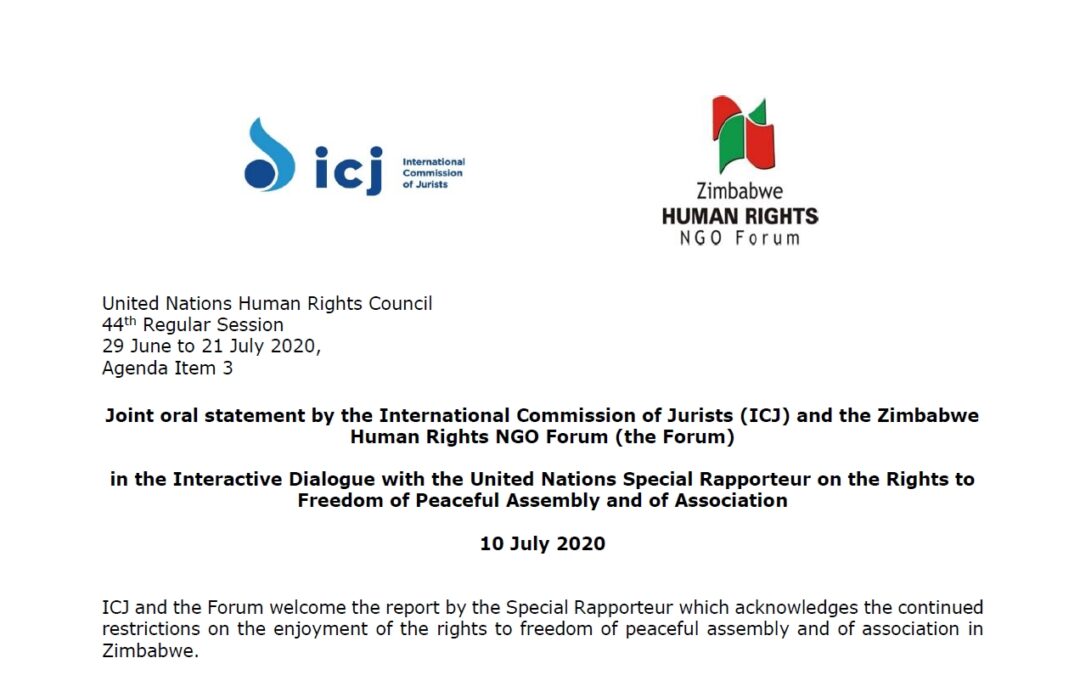
Jul 10, 2020 | Advocacy, Non-legal submissions
The ICJ and the Zimbabwe Human Rights NGO Forum highlighted today concerns on freedom of association and assembly in Zimbabwe, on the occasion of discussion by the Human Rights Council of a report of the relevant UN expert’s visit to the country.
The statement was prepared for delivery in an oral interactive dialogue with the UN Special Rapporteur on freedom of association and assembly on his reports to the Human Rights Council, including the report of his visit to Zimbabwe in September 2019.
The statement could not actually be read aloud due to the limited time for civil society statements in the dialogue.
The joint statement reads as follows:
“ICJ and the Forum welcome the report by the Special Rapporteur which acknowledges the continued restrictions on the enjoyment of the rights to freedom of peaceful assembly and of association in Zimbabwe.
The report mentions the use of excessive and lethal force by security forces; the use of military forces in managing protest; and the subsistence of repressive laws that curtail the enjoyment of the rights to Freedom of assembly and association.
ICJ and the Forum agree with the findings by the Special Rapporteur that the use of disproportionate and excessive force by the security has resulted in massive violations against protestors. In January 2019 following the “shutdown protests”, the Forum documented at least 1800 violations including 17 killings, 16 cases of rape and 81 victims were treated for gunshot wounds while ICJ documented at least 77 incidences of violation of fair trial rights of protestors.
The Maintenance of Peace and Order Act [Chapter 11:23] (MOPA) was enacted into law in November 2019 to repeal the Public Order and Security Act (POSA). MOPA reveal common similarities with POSA and maintains problematic provisions that do not guarantee the right to peaceful assembly.
ICJ and the Forum wish to draw the attention of the Special Rapporteur to the ongoing violations which have escalated in the context of the COVID-19 lockdown enforcement and the declining economic and social situation in Zimbabwe. While public health measures are crucial, these must be advanced in ways that do not unduly infringe on the rights to freedom of peaceful assembly and of association.
The government of Zimbabwe must be encouraged to comply with International human rights standards and guidelines such as the Guidelines for the Policing of Assemblies by Law Enforcement Officials in Africa; the United Nations Basic Principles on the Use of Force and firearms by law enforcement officials and the 10 principles for the Proper Management of Assemblies developed by the mandate in 2016.
ICJ and the Forum would to like to ask the SR what follow up he will do to monitor whether the Government of Zimbabwe complies with its international human rights obligations?”
The statement can be downloaded in PDF format here: UN-HRC44-statement-SRFoAA-2020
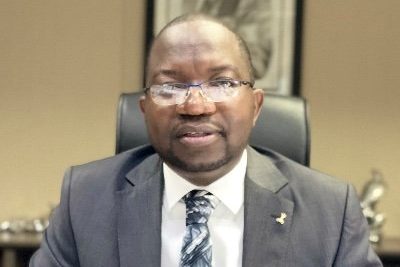
Jun 9, 2020 | News
As of 9 June, at least ten prominent lawyers have been arrested and criminally charged in Zimbabwe.
Among them, Advocate Thabani Mpofu (photo), Advocate Choice Damiso, Mr Tapiwa Makanza and Mr Joshua Chirambwe have been arrested and charged with the crime of defeating or obstructing the course of justice.
These lawyers are alleged to have falsified information in the papers filed in a legal matter in which they were representing a citizen, who was challenging the legality of President Mnangagwa’s decision to appoint Mr Kumbirai Hodzi as the Prosecutor General.
Mr Dumisani Dube was arrested on similar charges but his charges arise from a different case.
Mr Patrick Tererai was charged with disorderly conduct after he demanded access to his client who had been detained at a police station.
The ICJ notes that the criminal charges laid against all the six lawyers are linked to the performance of their duties as legal practitioners.
The ICJ reminds the Government of Zimbabwe of its domestic and international obligations pertaining to the right to fair trial and protection of the independence of lawyers, as underscored in the United Nations Basic Principles on the Role of Lawyers and the African Commission on Human and Peoples’ Rights Principles and Guidelines on the Right to a Fair Trial and Legal Assistance in Africa
These elaborate standards relevant to the right to a fair trial including under article 14 of the International Covenant on Civil and Political Rights (ICCPR) and article 7 of the African Charter on Human and Peoples’ Rights.
Of particular significance is Principle 16 of the UN Basic Principles which states that “Governments shall ensure that lawyers are able to perform all of their professional functions without intimidation, hindrance, harassment or improper interference;…. and [lawyers] shall not suffer, or be threatened with, prosecution or administrative, economic or other sanctions for any action taken in accordance with recognized professional duties, standards and ethics.”
In addition, Principle 20 provides that “Lawyers shall enjoy civil and penal immunity for relevant statements made in good faith in written or oral pleadings or in their professional appearances before a court, tribunal or other legal or administrative authority.” Similar provisions are included in Part I of the African Principles and Guidelines.
A lawyer would not generally be immune from criminal proceedings where allegations of perjury or intentionally providing false information to a court were well-founded.
In relation to this recent group of cases, the Law Society of Zimbabwe has expressed the concern that the arrests appear calculated to hinder the members of the profession from undertaking their professional duties.
In this context, the ICJ calls upon the Government of Zimbabwe to ensure that the right to fair trial for these lawyers is fully respected and that the criminal charges brought against these lawyers are not abused to subvert the independence of the legal profession.
“The arrest of ten lawyers within one week on criminal allegations arising from the performance of their duties as legal practitioners is a cause of concern. The state must ensure that these cases are handled fairly and that the criminal justice system is not abused to harass and intimidate lawyers who represent clients who are perceived as political opposition to the sitting government,” said ICJ Africa Director Arnold Tsunga.
Of late, Advocate Thabani Mpofu has represented opposition leader Mr Nelson Chamisa in a series of cases. These include the presidential election petition and the cases in which Mr Chamisa’s rise to the leadership of the opposition party has been challenged.
Contact
Arnold Tsunga, Director of the ICJ Africa Regional Programme, t: +263 77 728 3248, e: arnold.tsunga(a)icj.org
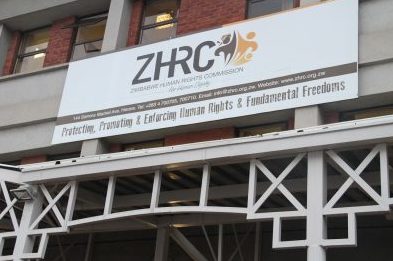
Jun 4, 2020 | News
The ICJ today urged the country’s authorities to take immediate measures to fully reconstitute the Zimbabwe Human Rights Commission (ZHRC) after its operations were effectively suspended following the expiry of the terms of office of four of its Commissioners on 7 May 2020.
One Commissioner had already resigned in 2018 meaning that the ZHRC no longer has the constitutionally required quorum for it to make certain decisions that are fundamental to the protection of human rights in Zimbabwe.
“The inability by the ZHRC to fully execute its constitutional mandate has serious implications on the ability of individuals -in particular victims of human rights violations -to access justice,” said Arnold Tsunga, Director of the ICJ Africa Programme.
“The role of ZHRC, as Zimbabwe’s national human rights institution is critical in providing an avenue for redress to victims of human rights violations and the general public,” he added.
Zimbabwe has been witnessing an escalation of human rights violations requiring investigation by a fully functioning and effective Commission.
This spate of human rights violations has had a disproportionate impact on the poor and economically vulnerable in the context of the Covid-19 lockdown measures.
There have been an increase in targeting of human rights defenders, civil society leaders and political opposition, which have included acts of enforced disappearance and torture and other ill-treatment.
The ICJ underlined that while redress for such violations required strong and independent judiciary as a guarantor of human rights, the role of fully functional ZHRC was critical to complement that of the judiciary.
The ICJ called upon the authorities in Zimbabwe, and in particular the Parliamentary Committee on Standing Rules and Orders, to act expeditiously to ensure that the vacant positions are filled without any further delay to enable the ZHRC effectively perform and discharge its constitutional mandate.
The ICJ said that failure by the responsible authorities to act expeditiously to fill the vacant positions violated the core values and principles the Constitution of Zimbabwe, in particular section 324 of the Constitution which provides that “all constitutional obligations must be performed diligently and without delay”.
In addition, the President to fill in any vacant position within three months of death or resignation of a Commissioner. The position of Commissioner Khombe became vacant on the 30 October 2018, and has not been filled to date.
Additional Information
The ZHRC is established as an independent institution under Chapter 12 of the Zimbabwe constitution with the general objective to “support and entrench human rights and democracy; to promote constitutionalism; to promote transparency and accountability in public institutions; to secure the observance of democratic values and principles by the State and all institutions and agencies of government, and government-controlled entities; and to ensure that injustices are remedied.”
On 26 May the Chairperson of the ZHRC, Dr. E.H Mugwadi, wrote a letter notifying “partners and stakeholders” of the retirement of four Commissioners, namely Dr Ellen Sithole (former Deputy Chairperson), Dr Joseph Kurebwa, Kwanele M. Jirira and Japhet Ndabeni-Ncube with effect from 7 May. The Chairperson noted that the retirement had left the Commission lacking the quorum to fulfil its constitutional obligations, particularly with respect to make policy resolutions and the adoption of monitoring and investigation reports. The Commission had also been unable to adopt Commission reports its activities.
International standards for effective and credible National Human Rights Institutions (NHRIs) are contained in the United Nations Principles relating to the Status of National Institutions (Paris Principles), which provide that NHRIs must be adequately resourced with sufficient institutional capacity to perform and discharge their responsibilities.
Contact:
Arnold Tsunga, ICJ Africa Director, t: +263 777 283 249; e-mail: arnold.tsunga(a)icj.org
Blessing Gorejena, ICJ Senior Legal Adviser, t: +263 772 151 989, e-mail: Blessing.Gorejena(a)icj.org
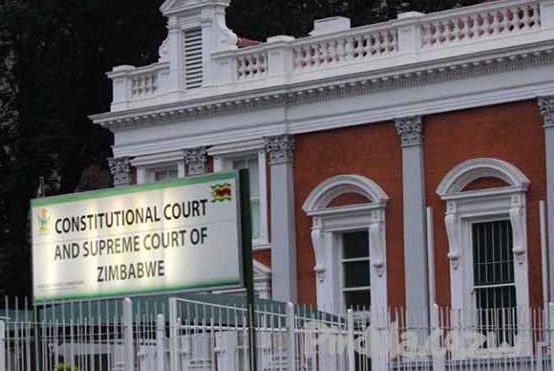
Apr 2, 2020 | News
The ICJ welcomes the decision by the Constitutional Court of Zimbabwe to invalidate the enactment of Constitutional Amendment Bill (No. 1) of 2017 in Gonese and Anor v Parliament of Zimbabwe and 4 Ors. The judgment restores important Constitutional guarantees for the independence of the judiciary in Zimbabwe.
Zimbabwe adopted a new Constitution in 2013 and one of the progressive elements of this Constitution was its provisions regulating the appointment of judicial leaders such as the Chief Justice, Deputy Chief Justice and Judge President of the High Court. These judicial leaders perform important administrative functions with a huge impact on access to justice for the public.
For example, the Chief Justice is the head of the Judicial Service Commission (JSC) and therefore, presides over processes to select and recommend candidates for judicial appointment.
The Judge President is responsible for case allocation in the High Court and therefore, selects judges to sit on cases. It is important that the procedures for appointing these judicial leaders be transparent and independent of executive control in order to maintain the independence and impartiality of judges as well as promote public confidence in the judiciary.
The 2013 Constitution ensured this by prescribing procedures which accorded the executive a constrained role in the selection and appointment of these judicial leaders.
For example, the process of selecting these office bearers was to be led by an independent Judicial Service Commission (JSC) which would publicly advertise the vacancies, shortlist candidates, conduct interviews that are open to the public and recommend candidates for appointment by the President. The President was required to appoint only from the shortlist submitted by the JSC.
In 2017, the then-President of Zimbabwe Robert Mugabe signed into law a constitutional amendment bill which sought to change these provisions and give the President the authority to select and appoint these judicial leaders without conducting public interviews and without being constrained or restricted to the shortlist provided by the JSC.
The enactment of this constitutional amendment bill was challenged in the Constitutional Court on grounds that the amendment had been adopted and enacted into law without following due process.
In its judgment, the Constitutional Court concluded that, “It is declared that the passing of Constitutional Amendment Bill (No. 1) of 2017 by the Senate on 01 August 2017 was inconsistent with the provisions of s 328(5) of the Constitution, to the extent that the affirmative votes did not reach the minimum threshold of two-thirds of the membership of the House. Constitutional Amendment Bill (No. 1) of 2017 is declared invalid to the extent of the inconsistency. The declaration of invalidity shall have effect from the date of this order but is suspended for a period of one hundred and eighty days, subject to the provisions of paragraph 1(b).”
The Court directed the Senate to conduct a vote in accordance with the procedure for amending the Constitution prescribed by s 328(5) of the Constitution within one hundred and eighty days of the order given. Failure to do so will render the declaration of invalidity of Constitutional Amendment Bill (No. 1) of 2017 final, said the Court.
Commenting on this judgment, ICJ Africa Director Arnold Tsunga said: “This is a positive judgment which underscores the vital principle of legality, particularly that changes to the Constitution must be processed and enacted in strict accordance with the laid out procedures. Respect for the Constitution, and ensuring the independence of the judiciary, are fundamental elements of the rule of law; both are advanced by this judgment.”
The decision by the Constitutional Court comes at a time when the Parliament of Zimbabwe has gazetted further proposed changes to the Constitution, which amongst other things seek to give the executive a stronger role in the selection and appointment of judges to the Supreme Court and Constitutional Court.
These proposed changes would undermine judicial independence and undercut public confidence in the independence and impartiality of the judiciary. Further, these proposed changes are contrary to international and African standards. For instance, the United Nations Basic Principles on the Independence of the Judiciary enjoin member states to ensure that “Any method of judicial selection shall safeguard against judicial appointments for improper motives.”
The African Commission on Human and Peoples’ Rights’ Principles and Guidelines on the Right to a Fair Trial and Legal Assistance in Africa further provide that, “The process for appointments to judicial bodies shall be transparent and accountable and the establishment of an independent body for this purpose is encouraged.” The ICJ therefore, calls upon the government of Zimbabwe to reconsider its decision to proceed with these proposed changes to the Constitution.
Contact
Arnold Tsunga, t: +26377728 3248; e: arnold.tsunga@icj.org
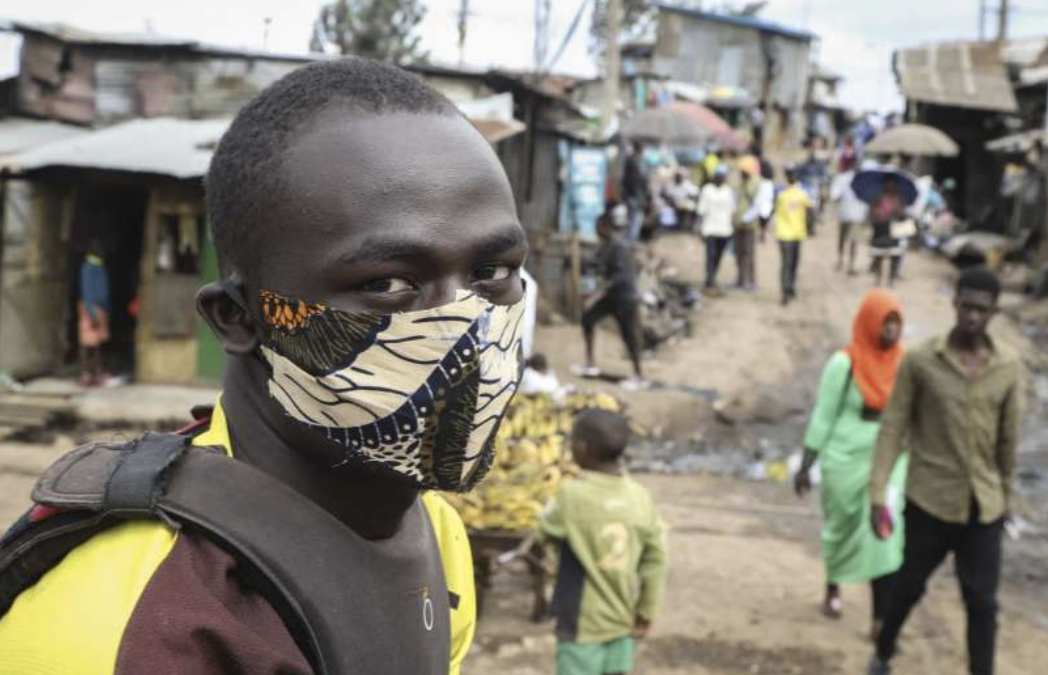
Mar 27, 2020 | News
The ICJ today called on the responsible authorities to adopt urgent measures to ensure the equal protection of the right to health and life of the country’s inhabitants in the wake of the growing COVID-19 pandemic.
The call came amidst indications that official response has been inadequate and poorly conceived.
Although Zimbabwe has only three officially confirmed COVID-19 cases and one casualty so far, the true figures are likely to be higher.
Media reports indicate that the health care facilities designated to deal with COVID-19 cases are severely under equipped. Doctors and nurses have announced that they are withdrawing their services because government is failing to provide them with protective clothing such as masks and gloves.
“The ICJ is deeply concerned by the poor state of preparedness of the Zimbabwean Government to handle COVID-19 cases,” said Arnold Tsunga, ICJ African Programme Director.
“The COVID-19 pandemic has brought to the fore cracks in health systems and presented governments everywhere with unprecedented challenges. The government’s response should however remain steeped in obligations espoused in the Constitution and international legal instruments to which Zimbabwe is a party,” he added.
The ICJ called on the Government of Zimbabwe to take urgent measures, include those aimed at ensuring that its healthcare system can provide for adequate screening, testing and care for COVID-19 patients.
The ICJ said that the Government must also investigate reports of the mishandling of patients, increase transparency and regular communication with the public and dedicate more resources to dealing with the COVID-19 pandemic.
Background
Zimbabwe announced its first confirmed case of COVID-19 on 21 March. The first casualty was recorded on 23 March. On 25 March 2020, the Ministry of Health and Child Welfare reported that a total of 100 people had been tested for COVID-19. Of these, 96 were negative, three tested positive and one test was found to be inconclusive.
Zimbabwe is a party to the International Covenant on Economic, Social and Cultural Rights (ICESCR), which imposes a duty to protect the right of everyone to enjoyment of the highest attainable standard of physical and mental health. Zimbabwe is also party to the International Covenant on Civil and Political Rights and the African Charter on Human and Peoples Rights, both of which guarantee the right to life.
Pursuant to Section 76 (1) of the Constitution of Zimbabwe, the government must provide access to basic health care services to all citizens and residents. Further, section 76 (3) of the Constitution enjoins government to ensure that no person is denied emergency medical treatment in any health care facility. In addition, government has an obligation, under section 51 of the Constitution, to protect human dignity.
The Committee on Economic, Social and Cultural Rights has set out the minimum standards which must be fulfilled at all times for States that are party to the IECSCR;
- Quality: Heath care facilities should be equipped with necessary equipment and medicine including safe and adequate water, sanitation and skilled medical professionals.
- Availability: Health care facilities with adequately trained and fairly-paid medical personnel and essential medicines should be made available to all.
- Accessibility: Health care facilities should be accessible to all without discriminating. Accessibility also includes physical accessibility, economic accessibility and access to information.
- Acceptability: Health care services should be provided in a manner that complies with medical ethics.
Measures undertaken by the Government of Zimbabwe, in response to the COVID-19 pandemic must adhere to these minimum standards. However, the ICJ has noted the following allegations and reports from credible media sources;
- Gross under-testing of people despite showing most of the COVID-19 symptoms;
- Absence of protective gear for health care workers;
- Lack of training of health care workers on the proper handling of COVID-19 related patients;
- Mishandling/ill treatment of patients at COVID-19 health care centres;
- Absence of equipment such as ventilators and respirators;
- Absence of running water at designated COVID-19 health care centres;
- Insufficient staffing at the designated COVID-19 care and isolation centres, as a result of some doctors and nurses having gone on strike;
- Government is establishing fully equipped COVID-19 health care facilities but exclusively for the political elites and their associates.
Contact:
Arnold Tsunga, Director of the ICJ Africa Regional Programme, t: +263 77 728 3248, e: arnold.tsunga(a)icj.org








